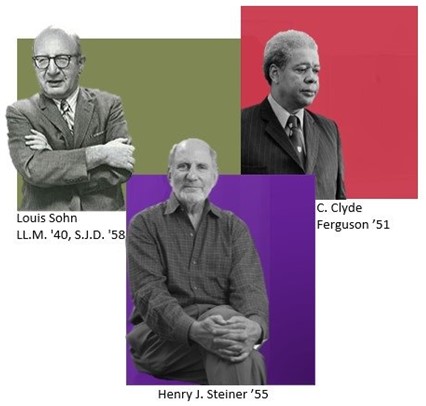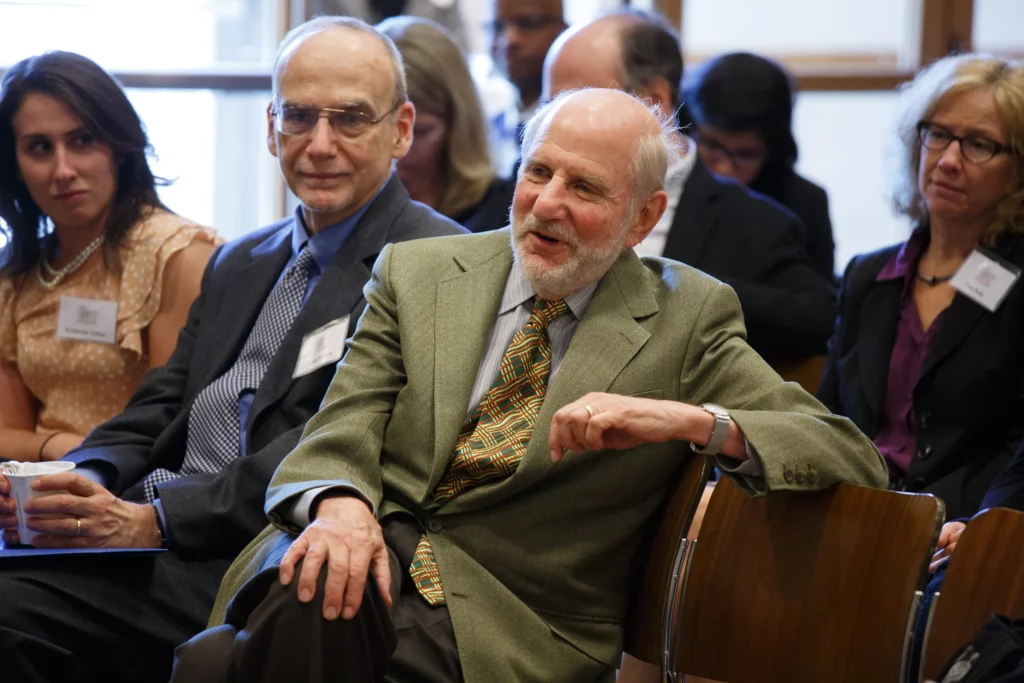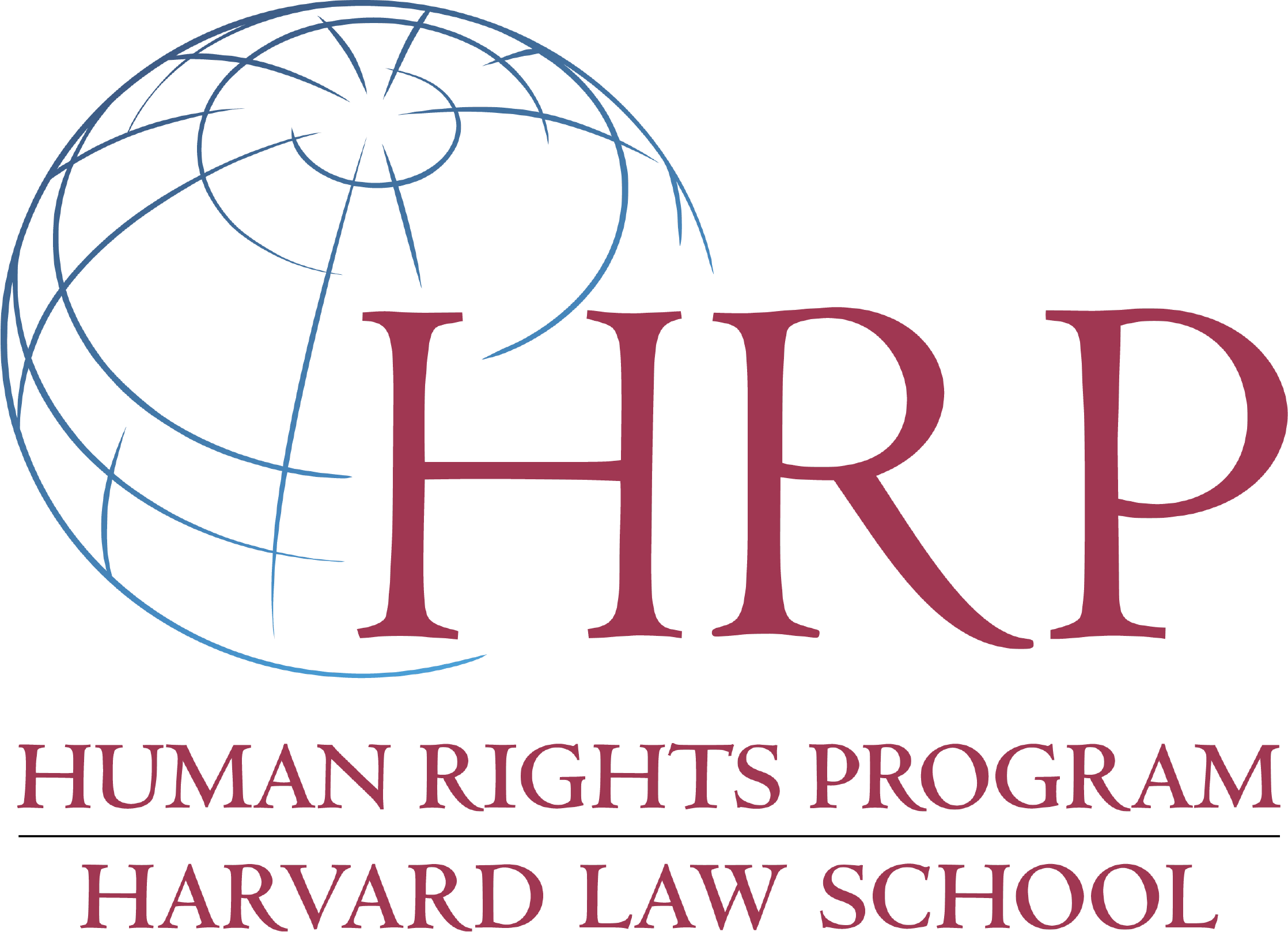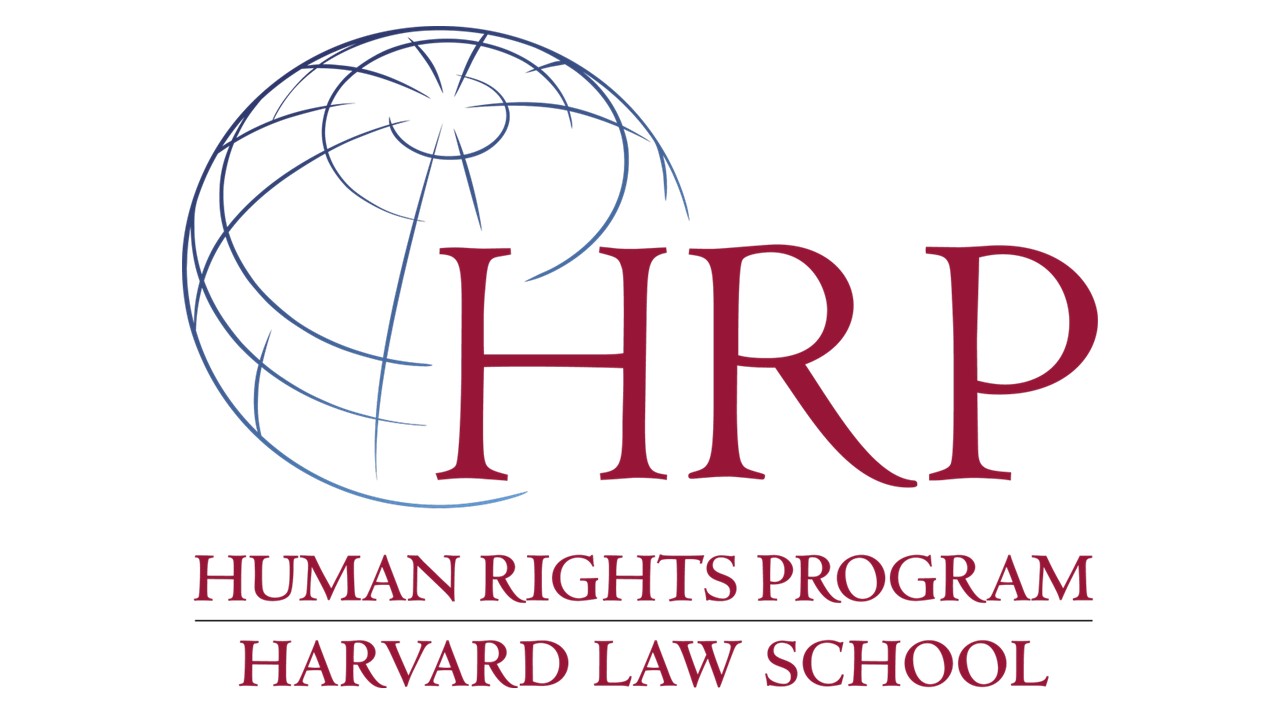HRP emerges from a rich educational history at HLS which has produced renowned academics, practitioners and global leaders in the human rights field. International human rights teaching began with Professor Emeritus Louis Sohn LL.M. ‘40, S.J.D. ‘58. Sohn started his career as an assistant for Judge Manley Hudson, LL.B. 1910, S.J.D. 1917, who had solidified the place of international law at HLS and was serving as a judge on the Permanent Court of International Justice. Sohn made influential contributions to the drafting of the United Nations Charter and the Statute of the International Court of Justice and is considered to be a founding figure in human rights law and international environmental law. While teaching human rights at HLS, Sohn also coauthored a casebook with Professor Thomas Buergenthal LL.M. ‘61, S.J.D. ‘68, who became another giant in the human rights field.

HLS continues to provide centers of excellence in teaching, research, practice, and advocacy in the human rights field. The law school’s innovative leaps such as the expansion of experiential learning in the 1970s and the establishment of HRP in the 1980s set the tone of engagement and reflection for the human rights community at the Law School. In addition to its students and alumni from around the world, the human rights community of HLS today includes leading research programs and centers, clinics, law journals, and student organizations.
Louis Sohn was joined by Professor C. Clyde Ferguson, who had the distinction of being a civil rights lawyer and an established scholar of international human rights law as well as a diplomat who had leading roles in US policy in Africa and at the United Nations. He continued Professor Sohn’s seminars and started a process of placing human rights at HLS on more solid ground. Although he launched an internship program that would later become HRP’s Summer Fellowship Program, he passed away suddenly in December 1983. The mission of establishing a permanent home for international human rights at HLS was taken up by another luminary at the forefront of international law scholarship, Professor Emeritus Henry J. Steiner. HRP was one of the first human rights programs to be based at an American law school, and the first such program at Harvard University.
Professor Steiner’s many contributions to the field included the major new human rights case book International Human Rights in Context: Law, Politics, Morals (1st ed. 1996), produced in collaboration with Professor Philip Alston, and later joined by Steiner’s successor as HRP director, Professor Ryan Goodman. Starting in 2012, HRP was jointly directed by Professor Neuman and Clinical Professor Tyler Giannini. Neuman was a co-author of another leading human rights casebook, Human Rights (1st ed. 1999), written with legendary international law scholar Louis Henkin ’40.
Since its founding, HRP has been asking critical questions about the human rights movement. In this process, HRP has helped push the boundaries of human rights scholarship, pedagogy, and practice. In addition to the pioneering role it played in the development of curricula and innovative clinical pedagogy, the Program has been a leader in cutting edge research and the publication of human rights books, reports, law journal articles, working papers, and other publications in its field. These and the Program’s other activities aim at enriching the internal life of the school and the external human rights movement.

Another area on which HRP had focused included public interest work that bridges theory and practice. The Program began to develop clinical pedagogy in the 1990s through an initiative led by HRP Administrative Director Jennie Green. In 2004 the International Human Rights Clinic (IHRC) was formally established as a component of HRP under the direction of James Cavallaro, who was its first Clinical Director and later the Executive Director of HRP. Starting that year, HRP comprised both the Academic Program and the Clinic, which made strides together in grappling with pressing human rights issues around the world.
Over the years, the Clinic has partnered with leading international and grassroots organizations, pursued projects that impacted a diverse range of human rights and humanitarian issues, and trained hundreds of HLS students to become effective social justice advocates. As of 2021, the Clinic is now a separate entity distinct from HRP, under the direction of Clinical Professor Susan Farbstein ’04.
HRP continues to support human rights education, public interest work, which are channeled into activities including its various fellowship programs that provide students with practical human rights experience and events focused on student learning. More broadly, the Human Rights Program, together with its current and former students, visiting fellows, staff, and professors, forms an integral part of the human rights ecosystem at Harvard and the global human rights community.

